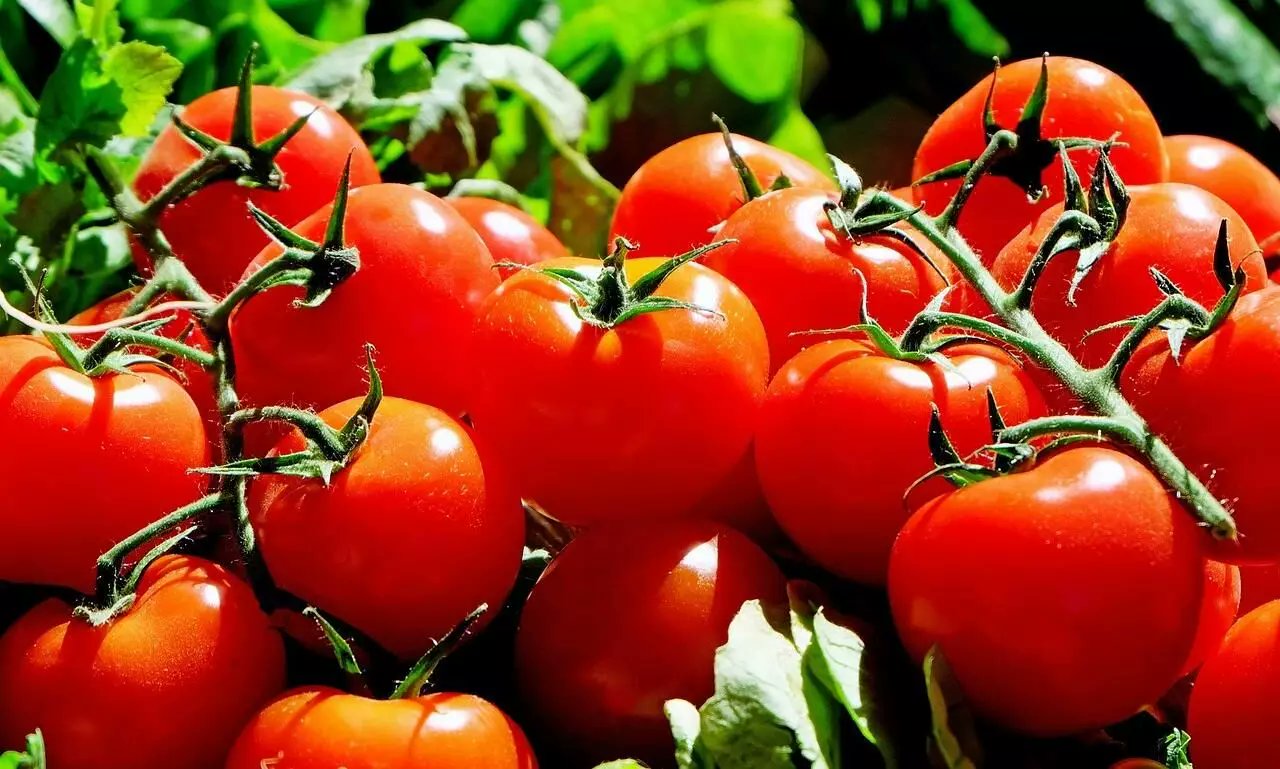Kathmandu: India is increasingly enlisting the number of Nepali agriculture goods in its plant quarantine order enabling their export to the southern neighbour.
The move, according to Nepali officials, will help reduce the large trade deficit with India. As the Himalaya country has a limited industrial base, Nepali officials say that being able to export more agricultural goods could help their production grow in Nepal.
In the latest move of opening up, the neighbouring giant opened the door for Nepal’s tomatoes to enter into the Indian market in early August amid surging prices of one of the key ingredients of Indian cuisine. Lately, tomato prices have come down significantly from as high as INR 300 per kg.
By issuing a circular to its subordinate offices on August 4, India’s Ministry of Agriculture and Farmers Welfare said that competent authority under it ‘approved the proposal of import of tomato fruits for consumption purpose from Nepal to India by following necessary phytosanitary conditions.’
As per the condition set by India’s authority, the tomatoes to be imported from Nepal should be free from bacterial leaf blight of tomato, pod blight soybean and brown rot. As a special condition, it should be free from soil, quarantine weed seeds and plant debris, the circular states.
Even though high prices of tomatoes in the market appeared to have triggered the Indian side to take such measures, Nepal had been making efforts to enlist tomatoes in the list of India’s Plant Quarantine order in the last few years.
“It has been three-four years that we have been lobbying with the Indian side to enlist the tomato in its plant quarantine order list enabling its export to the Indian market,” Mahesh Chandra Acharya, senior plant protection officer at the Plant Quarantine and Pesticide Management Centre under the Ministry of Agriculture and Livestock Development told India Narrative.
But the Indian government has stated in the circular that current market access to Nepal’s tomatoes was provided until October 31.
Nepali officials are not sure whether the southern neighbour would continue opening the door for Nepal’s tomatoes after the currently set deadline expires.
“India has now opened the door for Nepal’s tomato for the time being and its export has begun. If the current relaxation is continued, it will help to reduce trade deficit with India and expand the market for Nepal’s tomatoes benefiting the country’s farmers,” Nepal’s Ministry of Agriculture and Livestock Development said in a press statement last week.
“While tomato has been temporarily enlisted in the plant quarantine order, India recently decided to grant Chayote squash (Eskus) an entry permit to the Indian market by enlisting in the order ,” said Acharya. “The Indian side has however not yet notified us about whether it has been published in the Gazette of India formalising the entry of Nepal’s Chayote squash.” This will be long-term enlisting in the order, according to Acharya.
The Indian government’s decision has however been a source of happiness for the farmers of Suryodaya Municipality in eastern hilly district—Ilama which borders West Bengal, India.
https://twitter.com/workingonmydown/status/1678663459775344640?s=20
“We have heard that India has formally decided to give entry of Nepal’s Chayote squash to the Indian market formally. This is great news for our municipality which is a major producer of this vegetable,” Milan Bhattarai, chief executive officer of the municipality, told India Narrative.
Currently, farmers of the municipality have been largely selling excess Chayote squash in the domestic market with few informally reaching the Indian market too as two countries share an open border, according to Bhattarai.
According to Nepal’s Agriculture Ministry, the country produced as much as 39,581 tonnes of squash in the fiscal year 2021-22. Nepal cultivated the squash in 2,768 hectares of land in that fiscal year ending in mid-July 2022, the ministry said.
On June 12, the Ministry of Agriculture and Farmers’ Welfare included Shorea Robusta (Sal) seeds coming from Nepal in its Plant Quarantine Order list.
As per the notice, no additional declarations required in the phytosanitary certificate and no special condition applied for its import.
According to Acharya, who is also information officer at his office, sal seeds are produced in the range of 500,000 tonnes to 600,000 tonnes in Nepal in a year.
Sal seed, processed into fat, is a primary ingredient in the food and cosmetic sector, such as oil, soap, cocoa-butter equivalent in chocolate making, etc. Besides, sal fat is also used in the confectionery industries, for tanning and for production of Vanaspati ghee.
“We are exporting this product formally from this year and it will be a good source of income for Nepal,” he said, adding that his office had been making an effort to get it enlisted in India’s Plant Quarantine Order since last year.
About a dozen vegetables including cauliflower, cabbage, broccoli, leaf mustard, radish among others originating in Nepal have already been included in the list of India’s Plant Quarantine Order. “We are trying to get approval from the Indian authorities to export Red Savina pepper and green peas too in the Indian market,” said Acharya.
Nepal is a net importer of vegetables from India. The Himalayan country exported vegetables worth NPR 187 million to India in the last fiscal year 2022-23 ending in mid-July, according to the statistics of Nepal Rastra Bank, the central bank of the country. The country imported vegetables worth NPR 16.88 billion from the southern neighbour in the same year, the central bank said.
Also Read: India taps Nepal and Bhutan to ease food shortages, defines roadmap to collar inflation




















